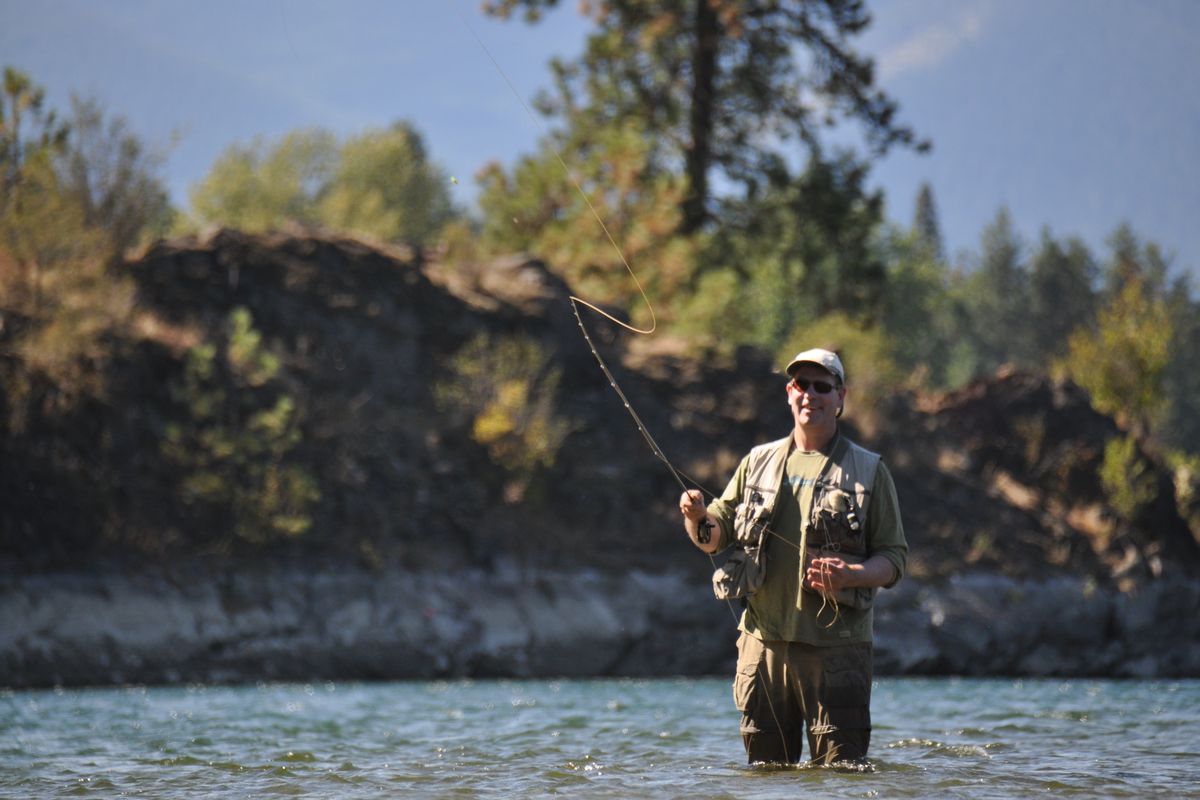‘He can communicate with anyone,’ longtime Panhandle wildlife official retires after securing millions for fisheries work

Early in 1999, Avista filed a new federal operating license for two dams on the Clark Fork River.
The 47-page agreement was modest in size as far as famously massive federal regulatory documents go. Nonetheless, it represented a milestone in hydropower projects. For the first time, a dam was relicensed before its 50-year federal license expired.
Even more impressive? The relicensing was completed with the blessing of 27 tribal, state and environmental groups in Montana and Idaho.
More than 20 years later, money from that settlement, known now as the Clark Fork Settlement Agreement, has funded conservation and habitat restoration work up and down the Clark Fork river drainage, all of which is why Chip Corsi names it his biggest success.
“Maybe the single most worthwhile thing I’ve worked on,” Corsi said when asked to reflect on a 40-year career with the Idaho Department of Fish and Game. “We’re still benefiting from that now.”
Corsi retired in late June as the Panhandle Regional director for IDFG. After 42 years of employment, he was the longest-serving IDFG employee. But in the 1990s, Corsi was an environmental biologist tasked with representing IDFG’s interests during the dam negotiations.
“It was pretty intense. They had fantastic facilitators and they did everything right in terms of bringing people together,” he said. “It was five years of a lot of meetings. A lot of meetings.”
The outcome was worth the effort, he said. Particularly because nearly all involved were happy about the settlement, upending clichés about compromise leading to everyone losing. While Corsi was just one of many players involved, those who worked with him, then and since, say he’s particularly good at balancing competing interests and perspectives.
“He was a collaborator before that word was popular,” said Ed Schriever, the director of IDFG, who started his career working for Corsi. “We manage a public trust resource and Chip holds that responsibility so sacred.”
Deane Osterman, the executive director of the Kalispel Tribe’s natural resources department, echoed Schriever’s praise.
“Well, the relationship between Idaho and tribes has always been a challenging one,” he said. “He made those challenges a heck of a lot easier. It’s a huge thing, this retirement.
“Chip has been the heart and soul there for a long, long time. He’s been the catalyst of our relationship with IDFG.”
While Corsi has worked on all types of issues – from the recolonization of wolves to the recovery of Panhandle elk herds – much of his work has focused on fisheries, particularly trout.
“So much trout water has flowed under Chip’s bridge,” former S-R outdoors editor Rich Landers said in an email.
Corsi was in charge during the influx of predatory lake trout, northern pike and walleye into North Idaho, particularly on Lake Pend Oreille. He also helped implement catch-and-release rules for trout in the Panhandle, a contentious process which ultimately “allowed the North Fork Coeur d’Alene and St. Joe rivers to become among the best cutthroat trout streams in the country,” Landers said. That’s not to mention the return of a burbot fishery on the Kootenai River and the re-emergence of kokanee, rainbows and bull trout populations on Lake Pend Oreille.
“I confess to being a trout junkie,” Corsi said.
That makes sense if you consider his history. Born in Long Island, New York, his mother’s family had a place in the Catskill Mountains. When Corsi was 4, his grandfather took him fishing for the first time.
Thus started a lifelong love.
“I thought that was the coolest thing in the world,” he said. “I got hooked on that really quick. I haven’t been unhooked ever since.”
Corsi attended the University of Idaho, where he studied fish biology with every intention of returning to his home territory when he graduated. One thing led to another and he got a summer job with IDFG and married a “local girl.”
All of which was fortuitous. With the benefit of 40 years of hindsight, Corsi said he’s come to realize he works in the best place to be a wildlife biologist.
“For what we do as an agency, I can’t think of a better place in the Lower 48, I would argue anywhere, to do this,” he said. “We aren’t trying to hang on to the last thing in most cases.”
One notable exception has been mountain caribou, which were extirpated from the Lower 48 under Corsi’s watch.
“It was a race against the clock that got lost,” he said. “It’s a bummer.”
Still, there were more successes than failures during Corsi’s 40 years. Many of those successes were funded, to some degree, by the more than $1 million available to IDFG each year under the terms of the Clark Fork Settlement Agreement. It’s a testament to Corsi’s collaborative skills and vision, Osterman said.
“The web of relationships that you build are, I think, the single most important facet of how we get stuff done,” Osterman said. “Because certainly there are technical problems and scientific problems, but most of the time we’re dealing with human problems.
“Chip is very good at communicating in large controversial settings. He can put people at ease but maintain his ground. He’s folksy as all get out. He can communicate with anyone.”